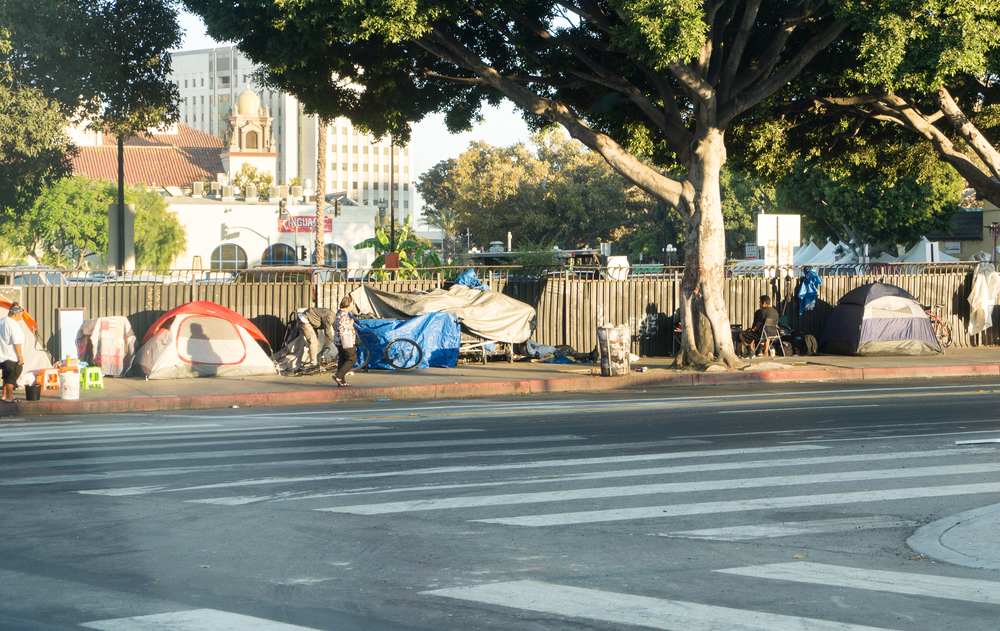“I’ve been poor, and I’ve been rich, and rich is better!” — Beatrice Kaufman.
Most of us have seen tough economic times — as starving students, newlyweds scrimping to get through college, new parents stretching to pay for their new baby or retirees adjusting to life without a salary.
Historically, however, most Americans have been able to achieve economic stability. The United States’ economic system has traditionally provided opportunity for determined, hardworking people to climb the ladder of stability and success. There is a pervasive feeling, however, that strong barriers to upward mobility have increased in today’s economy.
The noted conservative economist Thomas Sowell takes issue with those “who are committed to the theory that social barriers keep people down” and who “often cite statistics showing that the top income brackets receive a disproportionate and growing share of the country’s income.” Sowell says, “most of the media publicize what is happening to the statistical brackets — especially that ‘top 1 percent’ —rather than what is happening to individual people.”
Sowell maintains that “the very opposite conclusion arises in studies that follow actual flesh-and-blood individuals over time, most of whom move up across the various income brackets with the passing years. Most working Americans who were initially in the bottom 20 percent of income-earners rise out of that bottom 20 percent. More of them end up in the top 20 percent than remain in the bottom 20 percent.
“People who were initially in the bottom 20 percent in income have had the highest rate of increase in their incomes, while those who were initially in the top 20 percent have had the lowest.”
That’s welcome news for people willing and able to climb the opportunity ladder; for them, the American Dream is alive and well.
But some are not able to make that climb. They are trapped in intergenerational poverty and lack the skills and social assets to achieve upward mobility.
Utah studies show the one looming determinant of economic success is to get marketable skills in college or technical training. People with only a high school diploma or less are much less capable of succeeding economically. But it isn’t a simple matter of just getting those in intergenerational poverty through high school and into college. Why? Because their environment has often impaired them, often to the point of being unable to function in our educational system.
Adverse childhood experiences have serious implications for the health and well-being of children and as they become adults. These include physical, sexual and emotional abuse, physical or emotional neglect, intimate partner violence, mother treated violently, substance misuse within household, household mental illness, parental separation or divorce and having an incarcerated household member.
The consequences of adverse childhood experiences are devastating and lead to the pyramid of consequences. The first layer is disrupted brain/mental development that leads to social, emotional and cognitive impairment, which in turn fosters health-risk behaviors. These behaviors bring on disease, disability and social problems and result in early death. Along the way, victims leave a trail of poor academic performance and attendance, delinquency, substance abuse, inadequate education, illegitimate births, impaired newborns, endemic child and partner abuse and poor physical and mental health, including obesity, diabetes, depression, suicide, STDs, heart disease, cancer, stroke and accidents.
The costs of dealing with the consequences of intergenerational poverty are staggering, both public and private, including Medicaid, welfare benefits, WIC, food stamps, disability benefits, crime, mental health and substance abuse treatment, homelessness with all it brings, unreimbursed health care by hospital emergency rooms, loss of economic productivity and many more.
Utah has identified 39,376 adults and 59,579 children experiencing intergenerational poverty. To formalize concerns about this and to organize Utah’s response, the state formed the Intergenerational Poverty Welfare Reform Commission chaired by Lt. Gov. Spencer Cox. The commission and its partners are developing good data about the culture of persistent poverty and connecting and creating resources to address the stubborn problems that perpetuate this culture. The commission has developed five- and 10-year plans with four focus areas: early childhood development, family economic stability, health and education. The goal is “to ensure families experiencing intergenerational poverty have access to opportunity.”
Beyond wishing the commission well, we should all try to end this tragic cycle of human suffering.
![]()





